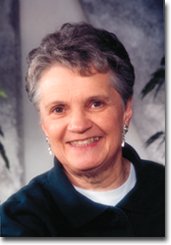
By Doreen Kerby
B. B. King is a famous Blues musician, singer, songwriter, and guitarist. He was born in 1925 in a small cabin on a cotton plantation near Berclair, Mississippi. When Riley was four, his father abandoned the family so his mother moved to Kilmichael to be close to her relatives.

Life was hard for blacks. There was no electricity, no running water, and food was scarce. Children worked in the cotton fields and school was bounded by the growing season. When cultivating began school closed; when harvesting was over school reopened.
Work was hard and the days were long, lasting “from can to can’t,” meaning they worked as long as there was enough daylight to see. But sharecropping was a losing game. Each spring the landowners charged tenants for animals, seed, and equipment. When the crop was harvested, high interest rates and dishonest charges put small farmers deeper in debt.
When Riley was ten, his mother died so his grandmother looked after him. Despite all the hardships, his mother’s belief in the ultimate goodness of all God’s creatures remained the foundation of her son’s outlook on life.
The family attended the Church of God in Christ and their pastor was Rev. Archie Fair. Music was the driving force in worship and Rev. Archie played the guitar. One day after church his aunt took him to the pastor’s home (his wife and Riley’s aunt were sisters). He let Riley play his guitar and it was love at first touch.
Riley attended Elkhorn School, a school for blacks, maintained by Elkhorn Baptist Church and his teacher was Luther Henson. He taught Riley to read, to be self-reliant, fair-minded, and devoted to self-improvement, an influence that lasted his entire life.

When Riley was 15, his grandmother died. Fortunately, the Cartledges, a white family took him in. He milked cows and tended hogs for $15.00 a month and went to school. He ate with the white family and their son Wayne was Riley’s friend. Flake Cartledge helped him buy a guitar. He called Riley “son” and his kindness taught Riley to see beyond colour and to judge people by their actions.
The church was a refuge for the African-American community. The Sunday services, river baptisms, and community dinners made the church the center of their lives. Church music was changing from spirituals to gospel, which had acquired both jazz and the blues so Saturday night fun could be enjoyed on Sunday mornings, too.
King grew up singing in the gospel choir at Elkhorn Baptist Church. When he was 18 he left Kilmichael for Indianola to work on a plantation, driving a tractor. He married Martha Denton and played guitar with a quartet performing at churches in the area and on WGRM in Greenwood, Mississippi.
He was asked to join the famous St. Johns Gospel Singers, a popular group that performed in churches and on the Delta radio stations. He also played on street corners on Saturday nights and noticed that people applauded his gospel songs but gave him money when he sang the blues.
An accident in 1946 changed Riley’s life. When he finished work he hurried to turn the tractor off and the machine lurched into the shed damaging the exhaust stack. He was so worried that the plantation owner would punish him that he wrote a farewell note and hitchhiked to Memphis, 140 miles away. His wife and friends never let the plantation owner know where he was because they knew the penalty could be severe. But in 1948 he returned to work off his debt and then left for Memphis again performing at KWEA and then WDIA, which targeted all-Negro audiences. A 15-minute spot as “Blues Boy” was responsible for changing his name to ”B.B.” King.
His big success came with “3 O’clock Blues” which held #1 on the R and B charts for five weeks. From that day till now B.B. King has toured with over 15,000 gigs and he is still at it. He may well be the preeminent blues player of all time.
The B.B.King Museum in Indianola, Mississippi opened in 2008 attracting 30,000 visitors the first year. His accolades and awards are too numerous to mention. However, in 1967, playing at the San Francisco Fillmore Auditorium an all white audience rose and applauded his entrance. “I started crying,” recalls Riley. They gave him four standing ovations that night. “That was the beginning of playing for a different crowd.”
B.B. King has performed in 90 countries and has been honored by four presidents. In 2004 King Carl XVI of Sweden presented him with the Polar Prize for Music. In 2008 President George Bush presented him with the Medal of Freedom, the nation’s highest civilian award. He plays a single –string style, immediately identifiable, a musician extraordinaire.
For more information :www.bbking.com